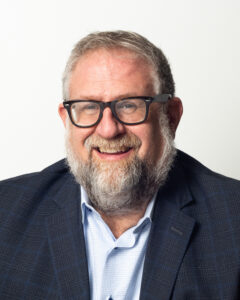By Matt Golden
Director, Jewish Community Relations Council
I should not have to write an article about what to do if your middle schooler is the subject of hate. Yet in the four short months that I have been in this job, five different parents have reached out to the Federation and the Jewish Community Relations Council (JCRC) because their kids experienced direct antisemitism in school. When I say direct antisemitism, I mean to say that a kid in school was the “direct” recipient of antisemitic hate from another kid in school. In four of these five incidents, the kids were only in middle school. These are only the incidents we know about. We do not know how many children or parents are victims of antisemitism who did not reach out for help.
It is not a surprise that we are seeing more antisemitic incidents in schools, because antisemitism is on the rise nationally. According to a new report by the American Jewish Committee, 82% of Jews noticed an increase in antisemitism over the past five years, with 26% of American Jews saying they were the target of an antisemitic incident last year. Interestingly, it’s not just Jews thinking this. Some 64% of all American adults believe that antisemitism is a problem. (https://www.ajc.org/AntisemitismReport2022/AmericanJews) When a substantial majority of Americans—Jews and non-Jews alike—can agree on something, we should take notice.
However, this article is not about the big picture way of stamping out antisemitism. Instead, it’s simply about what to do now when one of our kids or grandkids is a target of antisemitism. This is a process article about not having to stand alone.
First, we must understand that our children are not born with the tools necessary to comprehend antisemitism. This past December I spoke to a class of Jewish middle schoolers, and at least two of them reported that they did not talk to their parents about antisemitism because their parents did not talk to them about it. Fortunately, there are resources to help us communicate and expand our own knowledge. We have posted some material on the Louisville JCRC website that may prove helpful to you. I especially like the link to PJ Library’s article on “How to talk about antisemitism” because it addresses this in an age-appropriate way. This is obviously a difficult subject and there is no “one” or “right” way to communicate to our children about antisemitism, but we must take the first step in helping communicate in a constructive way.
Second, if we become aware of an antisemitic incident that impacts our children, we should report it. Jefferson County Public Schools treats antisemitism as a form of bullying, and rightly so. Under the “Bullying Law,” KRS 158.156, schools are required to have measures to address hateful conduct in schools. In compliance with that law, JCPS has a systematic procedure for reporting and dealing with bullying that starts with initiating a report. Reporting mechanisms can be accessed simply by clicking on the “incident reporting hotline” on JCPS’s website (see inset above). In turn, there is a clear process that follows the reporting so that a parent can expect follow up from the school. We should also report the matter to the school administrators. Many of the schools I have dealt with so far have been very responsive. Remember, the purpose of reporting is to correct the bullying behavior so that it does not happen again. It is as important for the perpetrator as it is for the victim, and is the principal method to determine if a school needs resources.
Third and finally, the Louisville JCRC, the Federation, Jewish congregations and other Jewish institutions in our city are your resources. And at least for my organizations and likely for all Jewish institutions in town, this goes whether you are a member or not. We are here to advocate for you, to stand with you, and support you with the tools necessary as we confront antisemitism in our schools. For example, after one such incident in December, Rabbi Beth Jacowitz Chottiner of Temple Shalom and I went to the involved school to speak directly to school administrators, and offer resources and guidance. This led to participating in a cohort to “teach the teachers” about antisemitism that will convene in the 2023-2024 school year at JCPS. We partner regularly not only with our local institutions but also with the Anti- Defamation League and the American Jewish Council, who provide free and readily available educational resources to schools. Moreover, thanks to Jewish Family & Career Services under the direction of David Finke, counseling is available to victims of antisemitism. In short, you are not alone; the Jewish community stands with you.
I devote a good deal of my opportunities in Community to speaking positively about the importance of belonging and leveraging our institutions to help not only ourselves, but also others amid our broader community. We should not lose sight of our Jewish positivity and resiliency in the face of adversity simply because of the ebbs and flows of hatred in our midst. Yet when hatred does rear its ugliness to threaten our kids, we also must know how to reach out to each other. I shouldn’t have to say this, but I’m glad I can.
Matt Golden is a lawyer and the Director of the Jewish Community Relations Council. In his opinion, the JCRC is the most august body in the Jewish Community, seeking justice and doing tikkun olam. He is admittedly very partial and biased in this regard. He invites comments, suggestions or good stories at mgolden@jewishlouisville.org.





